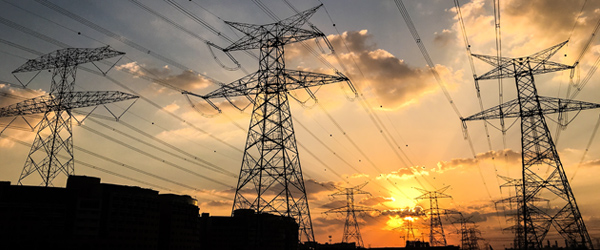Why Have Our Energy Bills Increased – Explaining Price Volatility

Washington, DC – It has been a record cold winter across much of the country, and many of us have been expressing deep concern as to why our energy bills have been so high. Regardless of whether you purchase your energy from a utility or a competitive energy supplier, customers have seen electricity and natural gas prices spike in many parts of the Northeast and Mid-Atlantic regions.
Why did prices rise?
Simply put, the issues at hand are the cold weather, electric grid and natural gas pipeline capacity, and the increasing use of natural gas not just for heating purposes, but to create electricity.
There is ample gas supply in the United States, especially given the boom in shale gas. What customers are feeling are the results of a strained transportation and infrastructure system that delivers electricity and gas. When demand is high and capacity is constrained, costs increase.
This winter’s “polar vortex” has increased the demand for both natural gas and electricity, resulting in significant congestion in our natural gas pipelines and on our electric grid (the highways of our energy system). We rely on these natural gas pipelines and the electric grid to get energy from where it is produced to where it is used by the homeowner, the tenant, and the business owner. Just like only so many cars can efficiently travel along a highway, only so much natural gas and electricity can move through the natural gas pipeline system and the electric grid.
Also, while more and more people are using natural gas directly for heating purposes, electricity generators are also increasingly using natural gas to produce affordable power. In the short-term, this electricity generation is putting further strain on our natural gas capacity in certain parts of the country. At the same time there are also bottlenecks on some parts of our electric grid, preventing electricity from getting from the generators to the consumers in an efficient manner.
As we know from economics, constraints on supply (such as not being able to get gas from where it is plentiful to where it is needed) cause prices to rise, and this has occurred in the wholesale energy markets. The result? Competitive energy suppliers and utilities alike are paying higher than normal prices when purchasing from the wholesale market in order to provide energy to homeowners, tenants, and business owners. This is causing everyone’s bills to rise.
As the winter weather gradually improves and temperatures rise, the demand for energy to heat our homes and businesses will decrease, placing less pressure on our nation’s electricity grid and allowing energy prices from our suppliers and utilities to normalize. However, winter weather may very likely be around for some weeks to come. Despite the unusual weather, the gas and electric delivery systems have proven to be highly reliable this winter. A number of new natural gas pipelines and electricity transmission lines are planned or under construction which should reduce the chances of a similar price spike in the future.
In the meantime, there are some things you can do to help manage your energy bills.
- Conserve your energy as much as you can. For example, make sure your doors and windows are well insulated, seal any air leaks, and lower the water temperature setting to 120 degrees on your water heater.
- Customers using a competitive supplier and who are on a variable rate plan or whose fixed contracts have expired, should review their contract to confirm the accuracy of the pricing and call their supplier if they have any questions.
- Customers interested in price stability can also investigate fixed price options that many suppliers offer.
- Customers in need of financial assistance should investigate their state’s home heating assistance programs. In many states, a customer can stay with a competitive supplier and still receive assistance paying utility bills.
- Customers should visit their state’s “energy shopping” websites to compare offers from different suppliers. For a list of shopping websites, visit vwww.CompetitiveEnergy.org.
ACCES (American Coalition of Competitive Energy Suppliers) is a group of competitive retail natural gas and electricity suppliers committed to consumer education and media outreach. Each member of ACCES is an energy supplier committed to helping consumers better understand and take advantage of the benefits of energy choice with high integrity.